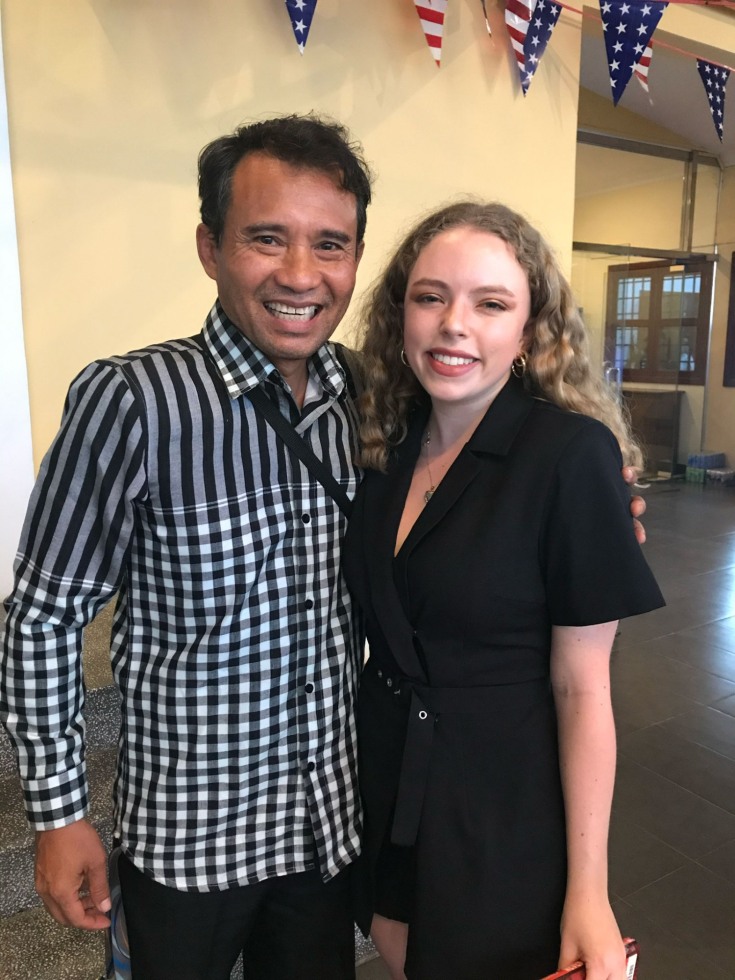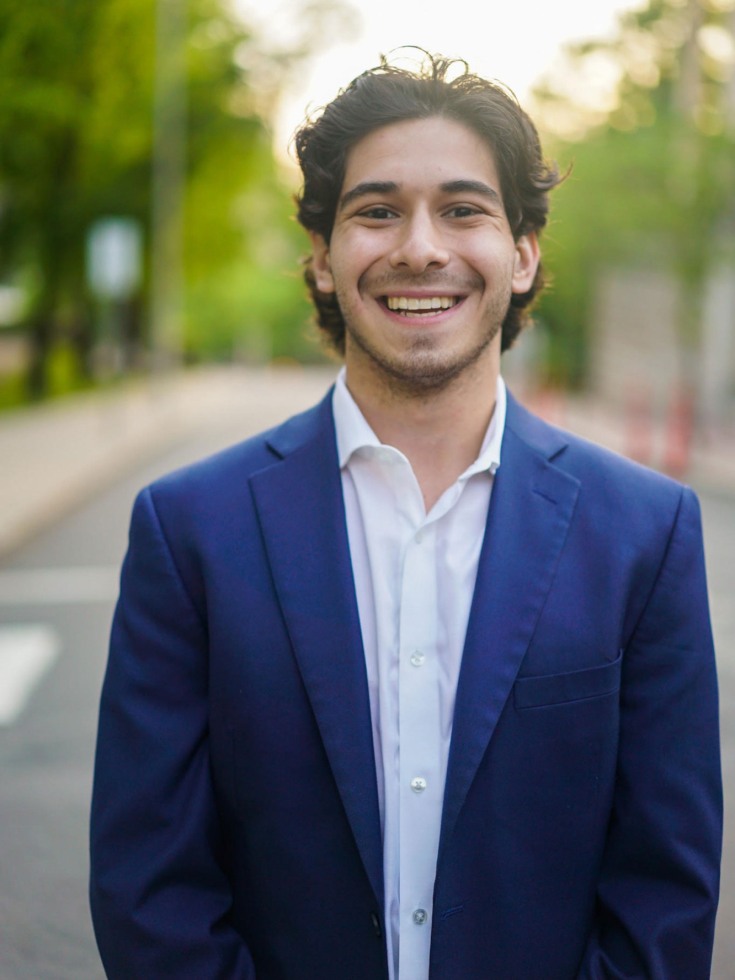“But then, the Afghan crisis started,” he said. The focus of his internship was transformed within a matter of days.
In the wake of the Taliban’s return to power in 2021, Afghan refugees began pouring into eight different military bases around the U.S. The IRC quickly sent Pushkin to New Jersey’s Joint Base McGuire-Dix-Lakehurst, known as Fort Dix, where he aided in the resettlement process for nearly 13,000 newly arrived refugees.
“There were so many kids just roaming around the base,” Pushkin said. “It was a really sad scene.”
With prior experience as a camp counselor, Pushkin immediately established youth programs like sports, arts and crafts and English classes. Once those were up and running, he collected and fulfilled requests from folks around the village — everything from getting bedsheets for families to investigating refugees’ legal status.
But by the fall, when he was set to begin the 2021-22 academic year at Brown, Pushkin was still at Fort Dix. Not only that, but he had also broken his foot and caught COVID-19. Worried about his status in a class he was looking forward to — Humanitarian Response to Modern Conflict, taught by Director of the Military Fellows Program and Senior Fellow in International and Public Affairs David Polatty — Pushkin sent a message to Polatty, explaining his situation and that he wouldn’t be able to show up to campus until class was already a month underway.
“The email I got back, it almost made me cry,” Pushkin said. “He essentially said, ‘Max, I’m so proud of you, and the work you’re doing is incredible. Don’t worry about anything until you get back. And also, I sent a donation to the IRC in your honor.’ By the way — I had never even met this professor.”
Pushkin credits Polatty’s support for not only helping him re-adjust to life at Brown after an emotionally taxing summer, but for helping to shape his plans after graduation — law school is in the cards, he said — and encouraging him to apply for the Marshall Scholarship.
Through his Marshall Scholarship, Pushkin will enroll in a master’s degree program at University of Oxford in refugee and forced migration studies, followed by a master’s degree program at the University of St Andrews in international security studies, offering him an opportunity to broaden his perspective in the policy and governance side of human rights work and a chance to collaborate with his cohort.
“If you’re doing a program like this, you’re super passionate about something, you have experience, and you want to be a part of the next generation of changemakers in that field,” Pushkin said. “I am so excited to meet the other people and see what their ideas are, to become involved with that exchange of knowledge.”

